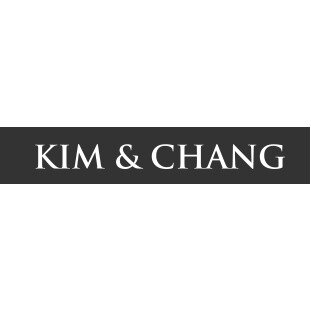Best Environmental Law & Compliance Lawyers in Jongno-gu
Share your needs with us, get contacted by law firms.
Free. Takes 2 min.
List of the best lawyers in Jongno-gu, South Korea
About Environment Law in Jongno-gu, South Korea
Environment law in Jongno-gu, South Korea, is part of a broader national framework designed to protect natural resources and ensure sustainable development. Jongno-gu, located in the heart of Seoul, is a district that balances urban development with green space preservation. The local government, in conjunction with national regulations, implements policies aimed at reducing pollution, protecting natural habitats, and promoting green energy solutions. Environmental concerns in Jongno-gu include air quality, waste management, and preservation of cultural heritage sites that integrate natural landscapes.
Why You May Need a Lawyer
Several situations might necessitate seeking legal counsel in environmental matters in Jongno-gu:
- Compliance Issues: Businesses may need to ensure they comply with the various environmental regulations applicable to their operations.
- Disputes: Individuals or organizations could face disputes related to land use, pollution, or natural resource management.
- Environmental Impact Assessments: Legal guidance is often required to navigate the regulatory demands of conducting environmental impact assessments for development projects.
- Legislation Changes: Staying informed and compliant with frequently changing environmental laws can be challenging, requiring expert advice.
Local Laws Overview
The key aspects of environmental laws in Jongno-gu include:
- Air Quality Management: Regulations ensure that businesses and individuals contribute to improved air quality through emission reductions and use of low-emission technologies.
- Waste Management: Strict waste segregation and recycling guidelines are enforced to minimize landfill use and promote sustainability.
- Water Protection: Laws safeguard water resources from pollution and ensure responsible water usage and conservation.
- Land Use and Development: Environmental laws regulate land usage to harmonize development with nature conservation efforts, especially in areas close to cultural heritage sites.
Frequently Asked Questions
What are the primary environmental concerns in Jongno-gu?
The main environmental issues are air pollution, waste management, and maintaining sustainable development while preserving natural and cultural heritage.
How can a business ensure compliance with environmental laws in Jongno-gu?
A business should regularly review legal requirements, conduct environmental impact assessments, and seek guidance from environmental professionals or legal experts.
Are there any incentives for businesses to adopt green practices?
Yes, the government provides various incentives, such as tax benefits and subsidies, for businesses that adopt eco-friendly practices and technologies.
What are the penalties for violating environmental regulations in Jongno-gu?
Penalties can include fines, suspension of operations, and mandatory corrective measures, depending on the severity and nature of the violation.
Who is responsible for enforcing environmental laws in Jongno-gu?
The Seoul Metropolitan Government, along with local agencies in Jongno-gu, is responsible for enforcing environmental laws and regulations.
Can individuals report environmental violations?
Yes, individuals can report violations to local environmental agencies, which will investigate and take necessary actions.
What resources are available for residents to learn about local environmental laws?
Residents can access resources on government websites, attend local community meetings, or consult with environmental law experts for up-to-date information.
How can developers ensure their projects are environmentally compliant?
Developers should conduct preliminary environmental studies, follow guidelines for environmental impact assessments, and engage with legal advisors.
What role does public participation play in environmental decision-making?
Public participation is crucial in environmental decision-making, especially in discussions about local policy changes and significant development projects.
Can non-profit organizations help in environmental matters?
Yes, non-profits can offer guidance, advocate for stronger environmental protections, and assist in navigating legal challenges.
Additional Resources
For those seeking help or more information on environmental laws, the following resources can be invaluable:
- Ministry of Environment: The national body governing environmental policies and regulations.
- Seoul Metropolitan Government's Environment Office: Offers resources and support specific to environmental issues in Seoul.
- Local Environmental NGOs: These organizations can provide assistance, advocacy, and information on current environmental issues affecting Jongno-gu.
Next Steps
If you require legal assistance in environmental matters:
- Identify the specific nature of your issue, whether it's compliance-related, a dispute, or another concern.
- Consult with a legal professional who specializes in environmental law to understand your rights and responsibilities.
- Gather all relevant documentation and evidence to support your case or inquiry.
- Consider visiting local government offices or NGOs for additional support and resources.
By engaging with knowledgeable legal counsel and using the available resources, you can effectively navigate the complexities of environmental law in Jongno-gu.
Lawzana helps you find the best lawyers and law firms in Jongno-gu through a curated and pre-screened list of qualified legal professionals. Our platform offers rankings and detailed profiles of attorneys and law firms, allowing you to compare based on practice areas, including Environmental Law & Compliance, experience, and client feedback.
Each profile includes a description of the firm's areas of practice, client reviews, team members and partners, year of establishment, spoken languages, office locations, contact information, social media presence, and any published articles or resources. Most firms on our platform speak English and are experienced in both local and international legal matters.
Get a quote from top-rated law firms in Jongno-gu, South Korea — quickly, securely, and without unnecessary hassle.
Disclaimer:
The information provided on this page is for general informational purposes only and does not constitute legal advice. While we strive to ensure the accuracy and relevance of the content, legal information may change over time, and interpretations of the law can vary. You should always consult with a qualified legal professional for advice specific to your situation.
We disclaim all liability for actions taken or not taken based on the content of this page. If you believe any information is incorrect or outdated, please contact us, and we will review and update it where appropriate.









